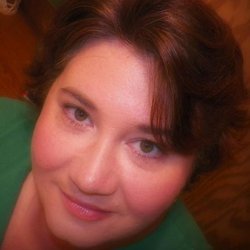Bio
I got started at a young age doing family research. We had a year long project in Government when I was in 9th grade about how my family changed America. It started from there :). I found out my family (Potts and Rutters) where some of the first Iron Master in America. John Potts, my 6th great grandfather, was the founder of Pottstown, Pa. He built Pottsgrove Manor, and was personal friends with George Washington. Washington's headquarters at Valley Forge was John's son, Issac, my 5th great uncle's home. The Potts and Rutters made cannon and ammunition for the Continental Army.
Dr. Jonathan Potts, my 5th great Uncle, was medical director-general of the Northern Department of the Revolutionary Army. He was born in Popodickson, Berks County, Pennsylvania in April 1745 to John Potts (founded of Pottsgrove, now Pottstown, Pennsylvania) and Ruth Savage. He studied medicine in Philadelphia (Under Dr. Thomas Bond) and Edinburgh, Scotland (with Benjamin Rush), and eventually practiced medicine out of Pottsgrove. In 1767, he married Grace Richardson of Philadelphia and, a year later, was part of the first class of medical student to be graduated from the College of Philadelphia.
Potts became a dedicated patriot and supported the Revolutionary cause in the 1770s. He served as a member of the Provincial Congress at Philadelphia in January 1775 and actively raised and organized forces in Berks County. His actions led to his appointment as physician and surgeon in the Continental Army in 1776, where he worked first at the army's hospital at Fort George, New York, then briefly in southeastern Pennsylvania and New Jersey, where he helped men after the Battle of Trenton, and then in Albany, New York. In 1777, he was named medical director-general of the Northern Department of the Revolutionary Army and was soon after conveyed back to Pennsylvania to work in Valley Forge where he was appointed purveyor general and deputy director of the Middle Department. Potts significantly contributed to the survival of the American army at Valley Forge through his ability to acquire drugs and medical supplies for the men. Potts served for a time as surgeon of the Philadelphia City Troop, and resigned from the army in 1780. He died in Reading, Pennsylvania, in October 1781.
The papers of Jonathan Potts are housed in four bound volumes and include letters, muster rolls, and receipts, lists, and vouchers relating to medical supplies and hospital service in the Revolution. There are also four essays in the first volume on the controversies between England and the colonies. The papers provide perspectives on a unique aspect of the war, making it possible to create a narrative about Potts's role, his movements, and the medical practices of the time. This collection also provides a great deal of information about battles, sick, wounded, and food and equipment shortages. This section was copied from the Historical Society of Pennsylvania.
I got started at a young age doing family research. We had a year long project in Government when I was in 9th grade about how my family changed America. It started from there :). I found out my family (Potts and Rutters) where some of the first Iron Master in America. John Potts, my 6th great grandfather, was the founder of Pottstown, Pa. He built Pottsgrove Manor, and was personal friends with George Washington. Washington's headquarters at Valley Forge was John's son, Issac, my 5th great uncle's home. The Potts and Rutters made cannon and ammunition for the Continental Army.
Dr. Jonathan Potts, my 5th great Uncle, was medical director-general of the Northern Department of the Revolutionary Army. He was born in Popodickson, Berks County, Pennsylvania in April 1745 to John Potts (founded of Pottsgrove, now Pottstown, Pennsylvania) and Ruth Savage. He studied medicine in Philadelphia (Under Dr. Thomas Bond) and Edinburgh, Scotland (with Benjamin Rush), and eventually practiced medicine out of Pottsgrove. In 1767, he married Grace Richardson of Philadelphia and, a year later, was part of the first class of medical student to be graduated from the College of Philadelphia.
Potts became a dedicated patriot and supported the Revolutionary cause in the 1770s. He served as a member of the Provincial Congress at Philadelphia in January 1775 and actively raised and organized forces in Berks County. His actions led to his appointment as physician and surgeon in the Continental Army in 1776, where he worked first at the army's hospital at Fort George, New York, then briefly in southeastern Pennsylvania and New Jersey, where he helped men after the Battle of Trenton, and then in Albany, New York. In 1777, he was named medical director-general of the Northern Department of the Revolutionary Army and was soon after conveyed back to Pennsylvania to work in Valley Forge where he was appointed purveyor general and deputy director of the Middle Department. Potts significantly contributed to the survival of the American army at Valley Forge through his ability to acquire drugs and medical supplies for the men. Potts served for a time as surgeon of the Philadelphia City Troop, and resigned from the army in 1780. He died in Reading, Pennsylvania, in October 1781.
The papers of Jonathan Potts are housed in four bound volumes and include letters, muster rolls, and receipts, lists, and vouchers relating to medical supplies and hospital service in the Revolution. There are also four essays in the first volume on the controversies between England and the colonies. The papers provide perspectives on a unique aspect of the war, making it possible to create a narrative about Potts's role, his movements, and the medical practices of the time. This collection also provides a great deal of information about battles, sick, wounded, and food and equipment shortages. This section was copied from the Historical Society of Pennsylvania.
Following
No Find a Grave members followed yet.
